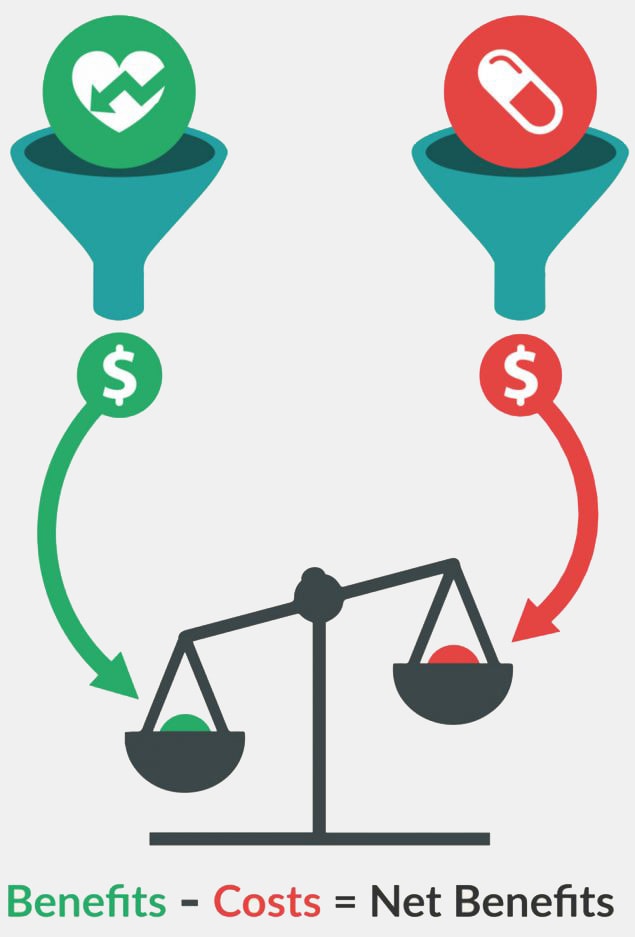Key points
- Compares intervention cost and benefits to determine health outcomes monetary value
- Can be used to compare health and non-health interventions

What is cost-benefit analysis?
Cost-benefit analysis is a way to compare the costs and benefits of an intervention, where both are expressed in monetary units.
Fact
What inputs are included?
- Costs including those of implementing an intervention.
- Benefits including those resulting from an intervention, such as medical costs averted, productivity gains, and the monetized value of health improvements.
What output does a cost-benefit analysis provide?
CBA provides the net benefits (benefits minus costs) of an intervention.
Cost-Benefit Analysis Example
The example provides the results from a CBA of an intervention to reduce trans fats in the food supply.

Monetary Valuation
The analysis estimates that the following benefits are worth $140 billion:
- Direct medical costs averted
- Valuation of quality of life gained due to non-fatal heart attacks averted
- Valuation of life years gained due to fatal heart attacks averted
Next, the analysis estimates that costs to the industry and consumers are $6 billion.
Calculation of Net Benefits
Benefits - Costs = Benefits
$140 billion in benefits - $6 billion in costs = $134 billion in net benefits
Based on this information, the intervention could generate $134 billion in net economic benefits.
For additional information, please see the examples used in the CDC Introduction to Economic Evaluation in Public Health online training.
How can decision makers use this information?
CBA's estimated net benefit offers a sense of the economic value provided to society by an intervention.
Decision makers can also use CBA to compare health and non-health interventions because both costs and benefits are expressed in monetary units. For example, CBA could be used to compare health and environmental interventions.
Resources
CDC Introduction to Economic Evaluation - Course providing a broad overview of economic evaluation methods with illustrative examples from public health
HHS Guidelines for Regulatory Impact Analysis - Provides guidance on methods, data and best practices for regulatory impact analyses for HHS agencies
